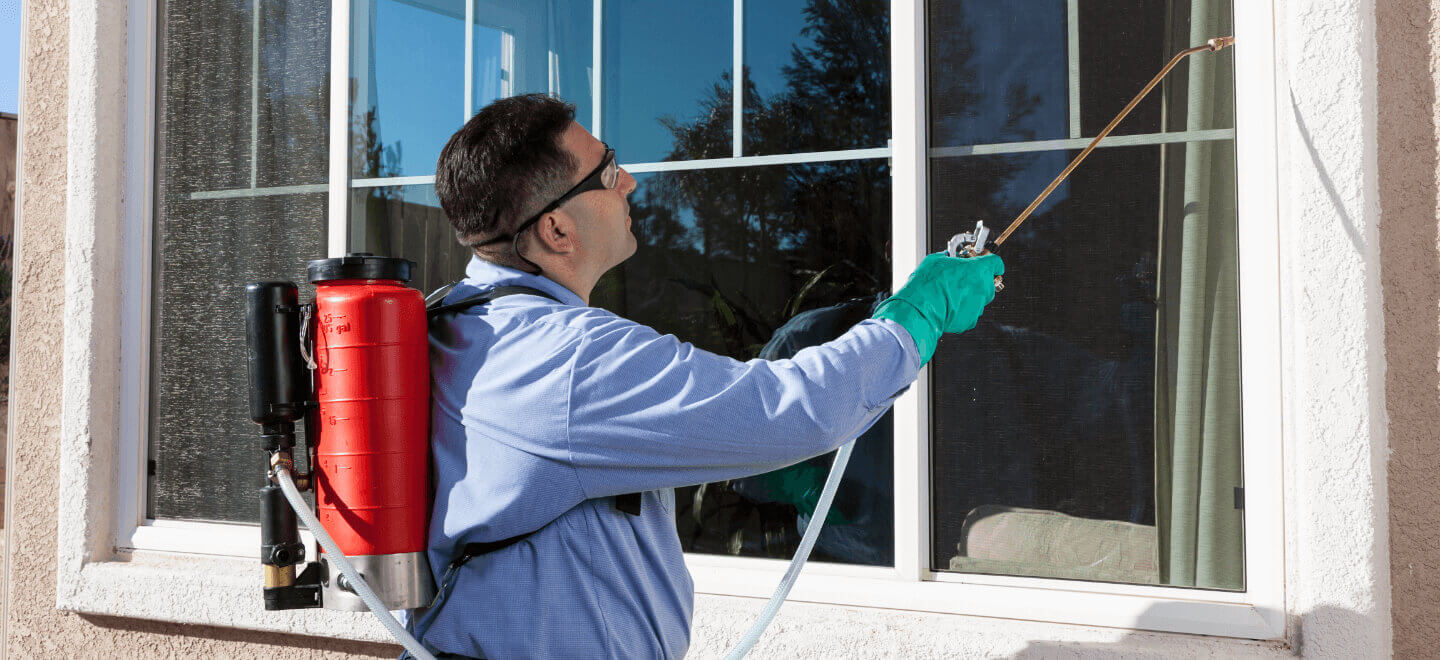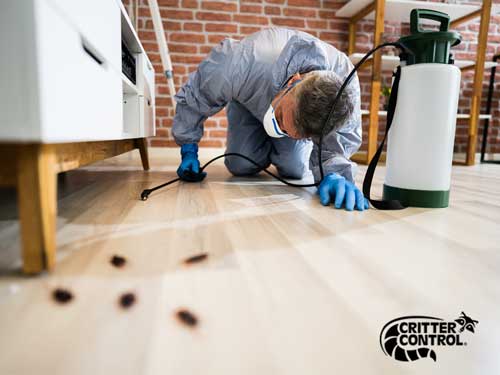Preventative Pest Control Services Chicago: The Very Best Way to Prevent Undesirable Pests
Preventative Pest Control Services Chicago: The Very Best Way to Prevent Undesirable Pests
Blog Article
Exploring Various Methods and Techniques for Comprehensive Pest Control in Residential Spaces
The landscape of insect control in domestic spaces has developed substantially, demanding a thorough understanding of various methodologies that can be employed for reliable monitoring. Standard chemical therapies, while efficient, are progressively being matched by environment-friendly options and Integrated Insect Management (IPM) strategies. House owners should consider preventative steps, such as routine monitoring and exact bug identification, to maintain a healthy and balanced environment. The actual difficulty lies in striking an equilibrium between efficiency and security-- an expedition that exposes the nuances of each technique and its implications for lasting living.
Understanding Bug Control Essential
Efficient bug control is vital for keeping a healthy and risk-free living environment. Comprehending the essentials of pest control includes identifying the kinds of bugs that generally invade domestic rooms, the possible risks they position, and the value of safety nets. Typical household parasites include rodents, insects, and other undesirable animals that can compromise health, damages residential property, and set off health concerns.
An essential primary step in pest control is identifying the particular parasites existing. This can entail evaluating locations such as basements, kitchens, and attics, where parasites are likely to flourish. Once recognized, it is essential to understand their habits, breeding cycles, and favored settings, which can notify ideal control methods.
Safety nets are essential to efficient pest monitoring. These consist of securing access points, preserving tidiness, and minimizing clutter to remove hiding areas. Furthermore, proper food storage space and waste administration can significantly decrease the allure of a home for pests.

Traditional Chemical Treatments
Among the numerous parasite control strategies, traditional chemical treatments have long been utilized to attend to problems in household rooms. These therapies typically involve the application of chemical pesticides developed to eliminate insects such as bugs, rats, and various other unwanted organisms. The efficiency of these chemicals can vary, relying on the sort of pest, the formula of the chemical, and the approach of application.
Typical courses of conventional chemical therapies consist of insecticides, rodenticides, herbicides, and fungicides, each customized to deal with details parasites. Pesticides, for instance, might target termites, ants, or cockroaches, while rodenticides are particularly formulated to regulate rodent populaces. These chemicals are typically offered in various kinds, consisting of sprays, baits, and granules, permitting home owners versatility in application.
Despite their performance, standard chemical treatments elevate concerns relating to potential poisoning to human beings, pet dogs, and valuable microorganisms in the environment. It is critical for property owners to carefully comply with application guidelines and safety preventative measures to minimize dangers. Integrated Pest Administration (IPM) strategies can match these therapies, ensuring a much more all natural method to pest control while making the most of efficacy and safety and security in domestic setups.
Eco-Friendly Parasite Control Options
Environment-friendly parasite control options are getting appeal as homeowners seek much safer and extra sustainable options to typical chemical treatments. These methods prioritize the health and wellness of both homeowners and the environment, reducing the effect of bug control techniques.
One widely embraced green strategy is using natural repellents derived from necessary oils, such as pepper mint and citronella. These oils not just hinder parasites yet also provide enjoyable scents for indoor spaces. Diatomaceous earth, a powder made from fossilized algae, acts as an all-natural pesticide by harming the exoskeletons of pests upon get in touch with, leading to dehydration.
One more efficient method includes advertising biodiversity in yards and backyards. Presenting valuable pests, such as lacewings and ladybugs, can normally manage pest populations (Chicago wasp nest removal). In addition, using traps made from biodegradable materials can help capture and remove parasites without triggering harm to the ecosystem
Normal upkeep, such as securing click for source access points and correct cleanliness, additional improves the effectiveness of environmentally friendly pest control. Home owners can take aggressive steps to prevent problems, making sure a more lasting living environment while properly handling pest-related problems.
Integrated Pest Monitoring Techniques
Applying integrated parasite administration (IPM) approaches provides a comprehensive technique to pest control that emphasizes prevention and lasting options. IPM incorporates several methods, concentrating on recognizing pest habits, life process, and ecological characteristics to minimize insect populaces effectively. This complex strategy prioritizes non-chemical approaches, such as organic control, habitat control, and social practices, to decrease dependence on chemicals.
A fundamental element of IPM is monitoring and determining bugs properly. When treatment is necessary, this involves routine assessments and the facility of activity limits to determine. By understanding the specific bugs influencing go to the website residential environments, targeted interventions can be employed, decreasing the chance of unneeded chemical applications.
By cultivating an atmosphere that discourages parasite invasions-- such as sealing access points and taking care of wetness-- homeowners can dramatically mitigate the danger of insect troubles. With these strategies, IPM not just addresses current bug issues yet also promotes sustainable methods that promote long-lasting pest administration success.
Preventative Measures for Residence
To fend off potential insect problems, home owners must take on a positive strategy that emphasizes preventative procedures. This begins with preserving a tidy and organized space, as mess and food debris bring in pests. rat removal chicago Illinois. Consistently vacuuming, sweeping, and wiping down surfaces can significantly decrease the risk of invasions
Additionally, securing access points is important. Homeowners should check windows, doors, and foundation splits for gaps that could enable parasites accessibility to the home. Utilizing caulk and weather stripping can successfully obstruct these entranceways.
Proper food storage is an additional critical step. Keeping food in closed containers and immediately tidying up crumbs or spills aids hinder rats and pests.
Moreover, managing outdoor environments can avoid bugs from intruding on household rooms. Home owners need to make certain that water drainage systems are operating well, and landscape design is kept neat. Trimming bushes and trees far from the home and eliminating standing water can even more lessen bug habitats.

Verdict
Finally, reliable pest control in property areas necessitates a multifaceted strategy that integrates conventional chemical therapies with green methods and Integrated Insect Monitoring methods. try this out By prioritizing preventative actions, such as preserving cleanliness and securing entry factors, house owners can significantly lower insect events. Routine monitoring and precise pest recognition further enhance monitoring initiatives. Ultimately, a well balanced approach that incorporates natural repellents and the very least harmful chemicals cultivates a risk-free and healthy living setting while dealing with pest-related difficulties.
Recognizing the fundamentals of parasite control involves recognizing the types of bugs that generally attack residential rooms, the possible risks they pose, and the value of preventive measures.A critical first step in bug control is determining the particular insects existing. Integrated Parasite Monitoring (IPM) strategies can complement these therapies, ensuring a more all natural strategy to pest control while making the most of efficacy and safety in residential settings.
Implementing incorporated parasite monitoring (IPM) methods uses an extensive method to pest control that emphasizes avoidance and lasting services.In conclusion, effective parasite control in property areas requires a multifaceted technique that integrates traditional chemical treatments with environmentally friendly practices and Integrated Bug Monitoring methods.
Report this page